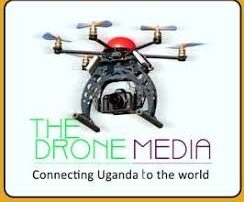MTN was caught by INMS siphoning Uganda’s dime

About two years ago there was a fight between telecom operators on one side, and the Uganda Communications Commissions (UCC), the Uganda Police Force, and State House on the other, over moves to monitor the sh 44 trillion mobile money business.
At the heart of the fight was a push by President Yoweri Museveni to get full access of the telecom data systems through the multi-billion technology called Intelligence Network Monitoring System (INMS) that government had bought.
The telecom companies fought hard to defend business secrecy. MTN Uganda, which says it controls 55% of the telecom market share or about 11.2 million subscribers, showed much interest in this fight. This was because the managers at MTN knew that their ill deals were destained to limbo.
Well, the INMS monitors mainly the data and voice operations of the telecoms, but it also exposes any other fraud.
However, the disagreements mentioned above stemmed from the push by government departments to pry into mobile money, which is the biggest cash cow of the telecoms.
Mobile money, which has been growing very fast, had a value of sh 44 trillion at the end of 2016. That is what the Uganda Police, State House, and the Ministry of ICT wanted to get involved in.
It was discovered that since telecoms started operating, they have been doing what is called self-declaration to the sector regulator, UCC. In other words, they have not been declaring the actual amount.
But with the entry of mobile money, which requires financial sector regulation, and the advent of cyber security and terrorism which implies roles for security agencies, several control wars erupted.
At the centre of the fight were the telecom operators, police, state house, ICT Ministry and sector regulator, UCC.
State House’s involvement in procuring the technology, was because it monitors Mobile Money operations, international calls and other data operations.
It is not clear how much was invested in the technology but at the time it was being procured, estimates put the cost at between $20-30 million (sh 66 billion–99 billion).
After several frustrated attempts to procure the technology, President Museveni finally awarded the deal to a company called Global Voice Group.
Under this company, Abu Mukasa had planned to run the technology in the arrangement of Build Operate and Transfer (BoT) because the government at the time didn’t readily have the money to procure it.
The biggest motivation to procure the technology was in its security features like enabling eavesdropping. Snoops gathered that it is State House that is now in charge of the technology.
Apart from its security features, the technology was also expected to put an end to suspected under-declaration of revenue by the telecoms.
Since telecoms have been “self-declaring”, the UCC has only been levying fees on them basing on what the telecoms say they earned.
Apart from the monitoring aspect, insiders say, the technology might also bring the country closer to dealing with a telecom fraud known as voice traffic termination fraud or SIMbox fraud, which costs telecom companies revenue and the government taxes.
Apparently, fraudulent SIMboxes hijack international voice calls and transfer them over the Internet to a cellular device, which injects them back into the cellular network.
As a result, callers from abroad end up appearing as if they are calling with local numbers.
The calls become local at the destination network like MTN, and the cellular operators of the intermediate and destination networks do not receive payments for the call routing and termination.
Besides causing the financial loss, an international study shows that SIMboxes degrade the local service where they operate. Often, cells are overloaded, and voice calls routed over a SIMbox have poor quality, which results in customer dissatisfaction, the study adds.
In Uganda, some of the major players in this fraudulent trade also happen to be major players in the telecom sector, senior officials in cabinet and some Chinese dealers.
The trade is very lucrative, insiders claim. While telecom companies are always co-owned, revenue and losses shared on top of paying taxes; for simboxes, apart from the initial capital injection, there are literally no expenses, no taxes at all since it is an underground business.
An owner of a simbox can earn up to $10,000 dollars a day from just one simbox, those knowledgeable about the industry claim. That is about $ 350,000 a year. And with multiple simboxes, the figure goes up to millions of dollars.

